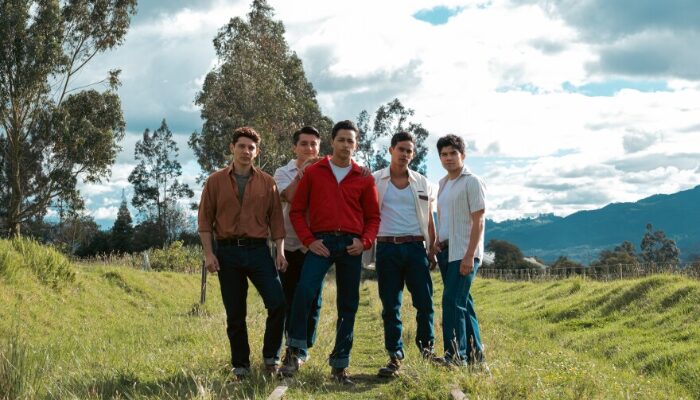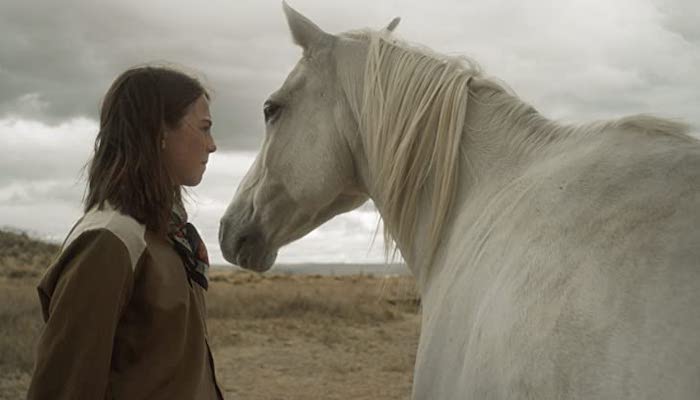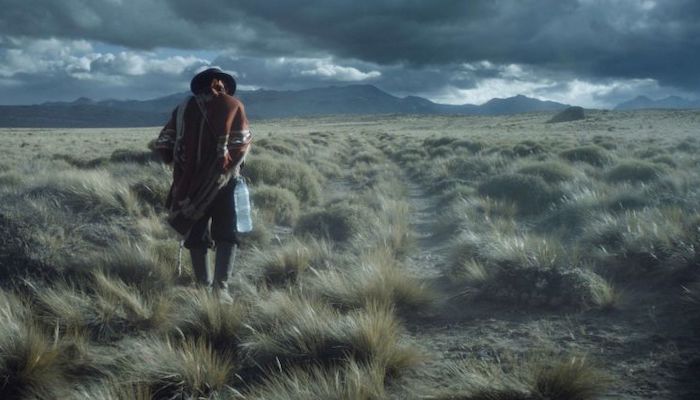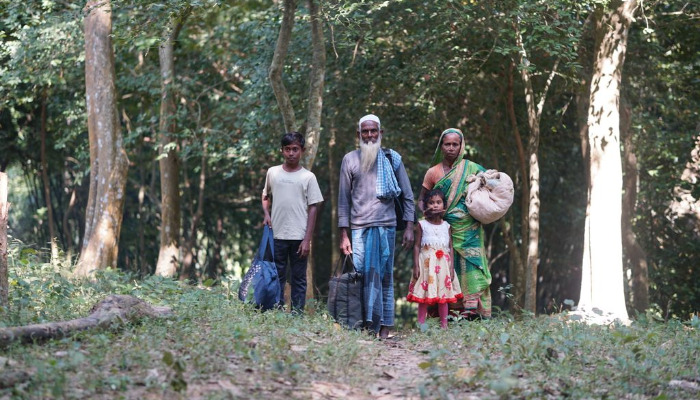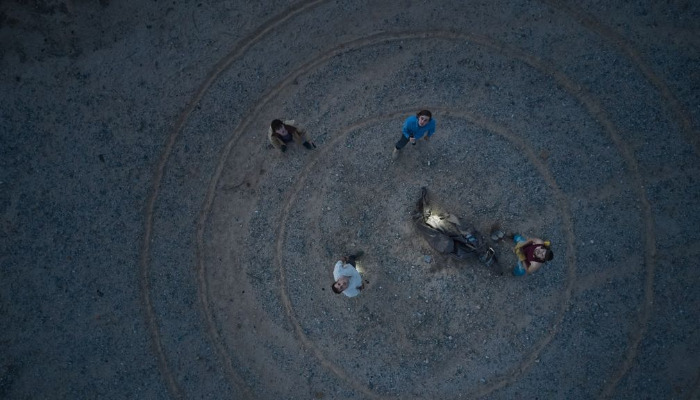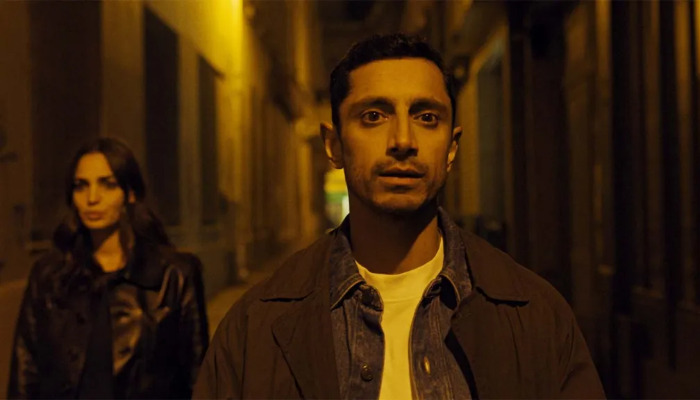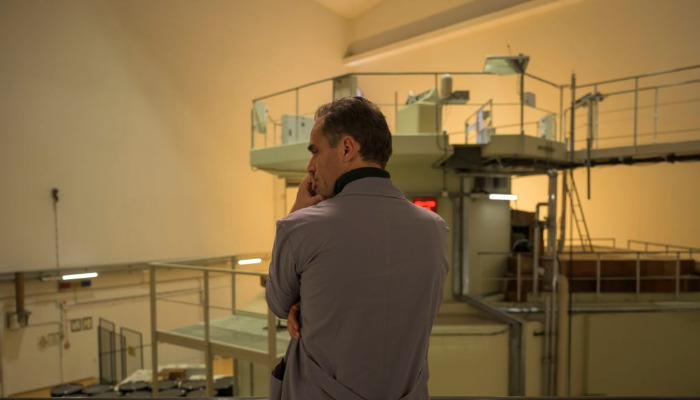Film Review: ZAHORÍ: An Argentinian Modern-Day Western About Our Relationship to the Surrounding World [Locarno 2021]
Zahorí Review
Zahorí (2021) Film Review from the 74th Annual Locarno Film Festival, a movie written and directed by Marí Alessandrini, starring Lara Tortosa, Santos Curapil, Cirilo Wesley, Sabine Timoteo, and Pablo Limarzi.
Amidst the Argentinian Patagonia, 13-year-old Mora (Lara Tortosa) scrapes by in a rural lifestyle with her brother Himeko (Cirilo Wesley) and their strictly-vegan Italian immigrant parents (Sabine Timoteo and Pablo Limarzi), who are attempting and failing at a self-sustaining farm. Mora is also an outcast at her regional school, as she’s not just the only gringa but is also the oldest and gangliest of the bunch, and she’s relentlessly teased for this on the daily. But she doesn’t really care, as she’s more at home hanging out with her elderly neighbor anyway – an aged gaucho named Nazareno (Santos Curapil), who teaches her about frontier life and surviving as a migratory South American rancher.
After one too many clashes with her classmates her headmaster sends Mora home with a pending expulsion, much to the dismay of her cold parents who already chastise her for her non-conformity (like wanting to eat meat that was presented as a gift from a passing rancher, which they force her to bury in the backyard). Not wanting to stay on her parents’ farm but not wanting to return to the school, either, she ventures out to Nazareno’s ranch in hopes of finding more permanent solace. But Nazareno has vanished – he’s left for the steppes in search of his lost horse, Zahorí, who ran away in the wake of the recent violent thunderstorm. Mora, unwilling to let Nazareno fend for himself against the elements, drags along a reluctant Himeko into the vast and lonely plains, hoping to stumble across the gaucho or his unruly equestrian in the process.
Zahorí, which is director Marí Alessandrini’s feature-length debut, is a fine embodiment of the western archetype applied to the South American landscape. Her documentary experience is evident in her observational and non-intrusive approach, as well as the subtly sharp ways at which she tackles the film’s thorny moral dilemmas.
Mora’s personal journey to gaucho is admirable, as it would break the mold of a mostly male-dominated role (one which, like the American cowboys of yore, has a certain mythos and tall-tale air about it). However, it’s equally emblematic of a Eurocentric stalwartness – a branching-off of sorts from her parents’ own bullheaded gentrification-like ventures. Whereas her parents think they can simply uproot their family’s lives and find uninhibited success within new terrain, so does Mora think she can occupy a role traditionally for mestizos and other South American natives without pushback from her adopted culture.
That’s not to admonish a 13-year-old for not having the cultural literacy to understand every nuance of her actions, nor does that imply that she deserves the discrimination she receives from her peers (not just due to her whiteness but also due to her womanhood). Rather, it’s how Mora’s struggles (and even the film’s framing of them as such) are representative of larger social phenomena at play: of how white settler entitlement gets passed down and manifests itself amongst younger generations in new ways. It’s America’s whole pioneering spirit of “Manifest Destiny”, just moved south of the equator.
Alessandrini, to her credit, does a good job at subverting these undercurrents by contrasting them with Mora’s own arc and her journey towards humility.
Her stubborn refusal to adhere to her parents’ veganism is initially seen as a rebellion to their fundamentalist approach, but that’s challenged both when Mora must contain her frustration in order to gain Zahorí’s trust and when Nazareno refers to Zahorí has his only “friend”. This horse is more agreeable when approached with patience, and this elderly, downtrodden man is running himself ragged over the Patagonian steppes to make sure the horse is safe before he croaks, and both of these instances give Mora pause. Maybe animals do deserve an assumption of autonomy … maybe there is a more harmonious way humans can live with nature rather than just seeking out domination and control of it … maybe her parents were getting at something, but they were just doing it through a patronizing, Westernized lens.
The result is the film’s precarious dichotomy of morality, which – like all the best westerns – thrive within that realm of cognitive dissonance. (Alessandrini even throws a couple of relentless Mormons into the mix, hiking and proselytizing to anyone who’ll put up with them, further showcasing aggressive Western expansionism in all its insidious forms.)
This disintegration of humanity and nature’s reciprocal relationship also shows up on a wider scale. The locals are frequently dealing with violent thunderstorms and winds that blow in ash from over the mountains. Although it’s never clearly delineated as to the ash’s origins, a good assumption would be that of wildfires occurring across the continent. Such extreme weather is something that has and will continue to become common in the face of an impending climate crisis, and Zahorí whispers about these events as the deadly ecological side effects of colonialism/imperialism – i.e. what the gentrification mindset can do when applied to a global scale.
All this impending doom isn’t to suggest that Alessandrini doesn’t want to capture the natural beauty that still exists in the face of it. Joakim Chardonnens’ wide-angle cinematography beautifully captures the Argentinian vistas in all its earthy tones. Alessandrini and co-editor Myriam Rachmuth ethereally blend all these images together, too, in ways that bring out both the wonder and the nightmarish potential that exists within them.
Zahorí is an Argentinian western that is as much about finding our place in our personal lives as it is about finding our place in the world around us. If we compose ourselves through reciprocal respect, then there will be even more wonders to explore.
Rating: 7/10
Leave your thoughts on this Zahorí review and the film below in the comments section. Readers seeking to support this type of content can visit our Patreon Page and become one of FilmBook’s patrons. Readers seeking more Fantasia International Film Festival news can visit our Locarno Film Festival Page, our Film Festival Page, and our Film Festival Facebook Page. Readers seeking more film reviews can visit our Movie Review Page, our Movie Review Twitter Page, and our Movie Review Facebook Page. Want up-to-the-minute notifications? FilmBook staff members publish articles by Email, Twitter, Facebook, Instagram, Tumblr, Pinterest, Reddit, and Flipboard.
Related Articles
FilmBook's Newsletter
Subscribe to FilmBook’s Daily Newsletter for the latest news!

